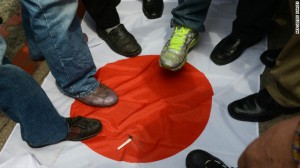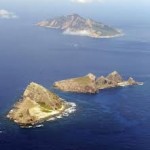Bride and Boy and I are back in the academic saddle as of last week, and I saw my freshman writing classes for the first time. Like many Chinese university students, they were often bored during their seven weeks back home, during the huge annual migration that is the Spring Festival period. However, don’t be afraid, for I helped them by giving reading and writing assignments to do. (Attaboy, teach!) So, then I had 324 pages of journal writing to read. (Doofus!) I learn a lot about China and my students that way, though, and not only about which ones are most inclined to plagiarism, and which kids actually try to read in English instead of watching a movie. (You read The Godfather? Puzo’s thick, complex, racy novel? Really?)
Their first new assignment of the term is the argumentative essay. So what do you really feel strongly about? This is often a tough question for kids here, as they are not trained to think critically, and Chinese life requires acceptance, waiting and there-is-no-why (mei you wei shenme) in quantities that North American students can’t imagine. I gave examples and prompts. I asked, for example, Who is the proper owner of the Diaoyu islands? and quickly answered China, of course! and they all smiled at the obviousness of the answer. But when I mentioned that every Japanese student would “think” otherwise, oh, and by the way, that Taiwan is closer than either China or Japan and, yes, Taiwan does not think of itself as being part of the mainland — well, the brows furrowed a little. They started to get where I was going with this: opinion, argument, mind-sharpening, “to learn to write is to learn to have ideas”, as Robert Frost once said.
It put a crease or three in my forehead, too. How do we know when we are really THINKING?



